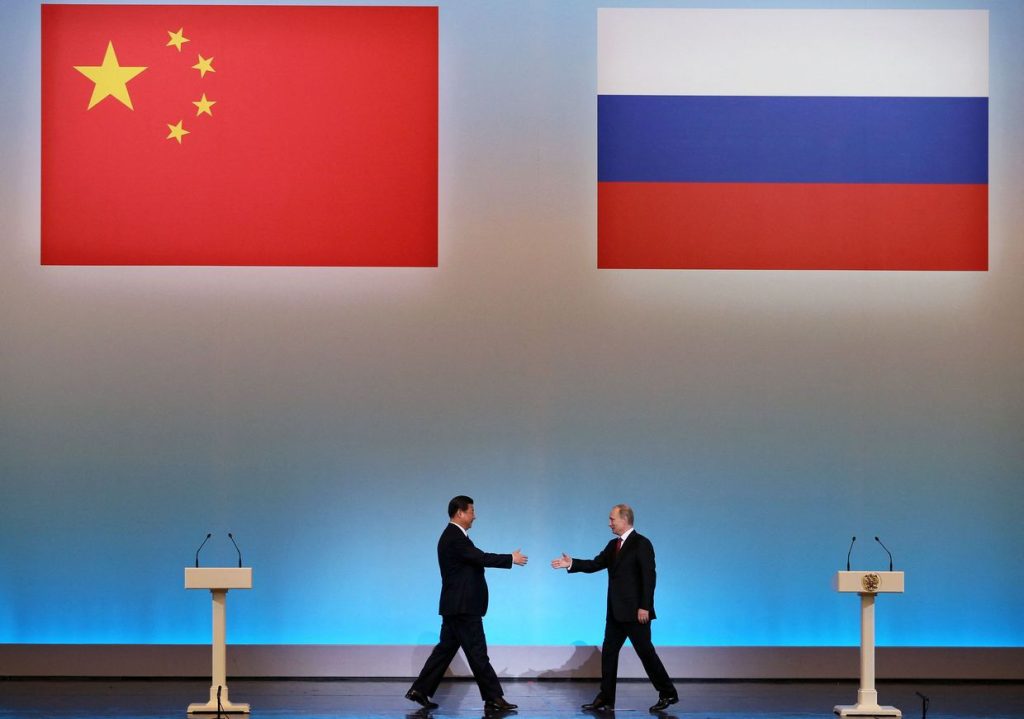Chinese banks are facing restrictions on transactions with Russia amid fears of potential U.S. sanctions. Reports indicate that major Chinese banks are limiting payments for transactions with Russia to avoid being targeted by potential sanctions from the United States. Chinese banks have increased scrutiny on Russia-related transactions since March or have completely ceased doing business with Russia to prevent any repercussions from the U.S. threats. This has impacted financing even for non-military trade between Beijing and Moscow, creating challenges for small Chinese exporters who rely on such transactions. Some companies have resorted to using small banks at the border or underground financing channels, including banned cryptocurrencies, as a way to continue conducting business with Russia.
Recent reports suggest that China is aiding Russia’s war effort in Ukraine by providing machine tools, weapons technology, and satellite imagery. China is also believed to be supplying Russia with semiconductors and other dual-use technologies that could potentially be used for military purposes. U.S. Secretary of State Antony Blinken and other American officials have warned China against providing lethal military aid to Russia and have urged Beijing to use its influence over Moscow to help end the conflict. The pressure of Western sanctions seems to be impacting Chinese banks’ operations in and with Russia, leading to increased caution and a shift towards alternative payment channels in order to continue facilitating trade between the two countries.
There are indications that Russia will export natural gas to China at prices significantly lower than those for European clients until at least 2027. The Russian Economy Ministry’s outlook suggests that the prices for natural gas exports to China could be up to 28% lower compared to those for European markets. This arrangement highlights the strategic partnership between Russia and China in the energy sector, with Russia offering more competitive pricing to China as part of their cooperation. The continued trade between Russia and China in natural gas points to the deepening economic ties between the two countries, despite external pressures such as U.S. sanctions and geopolitical tensions.
The evolving dynamics of the relationship between China and Russia amid global geopolitical developments underscore the complex interplay of economic interests, political considerations, and international sanctions. Chinese banks navigating the challenges of potential U.S. sanctions on transactions with Russia reflect the broader impact of geopolitical tensions on financial institutions and trade activities. As China continues to play a role in Russia’s war effort in Ukraine, concerns over the implications of such involvement on the global stage persist. The strategic pricing agreement for natural gas exports from Russia to China further solidifies the economic cooperation between the two nations, despite external pressures and geopolitical uncertainties.
The changing landscape of international finance and trade, particularly in the context of the Russia-Ukraine conflict and the involvement of global powers like China, highlights the interconnected nature of geopolitics and economics. The reliance on alternative payment channels and financing methods due to restrictions on transactions between Chinese banks and Russia speaks to the adaptability and resilience of businesses amidst geopolitical uncertainties. As discussions around potential U.S. sanctions on Chinese banks intensify, the implications for cross-border trade and financial activities remain a key concern for stakeholders in both countries. The strategic partnership between Russia and China, underscored by the discounted natural gas exports to China, showcases the complex web of economic relationships amid geopolitical challenges and shifting global dynamics.


